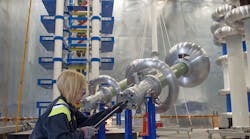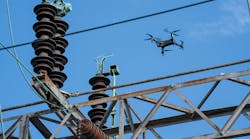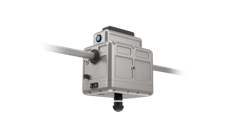Austrian polyolefin makers Borealis recently unveiled its newly expanded electrical testing facilities in Stenungsund, Sweden.
The event may have occurred across the Atlantic, but it underscores a global phenomenon – the rapidly growing demand for wires and cables, buoyed by the massive expansion of power generation by renewable energy resources such a wind and solar.
That, in turn, is boosting the demand for polyolefin since the entire electrical grid relies on plastic materials, from power cable insulation to power cable jacketing, for efficiency and safety in power transmission. And Borealis, with its advanced solutions, stand to play a key role in making power grids more robust as it transports renewable energy via insulated cables and wires, often over long distances.
Referring to the company’s EUR 4 million investment in the testing facility, Bart Verheule, Borealis’ Head of Marketing, Energy said, “These local facilities will allow us to step up collaboration with our global customers and value chain partners to become even more innovative.
“They also boost Stenungsund as a hub for wire and cable expertise and production.”
Earlier this year, Borealis entered into a petrochemical joint venture with Total S.A. and NOVA Chemicals Corp. to own projects along the US Gulf Coast including a new $1.7 billion ethane steam cracker – feedstock for polyolefin – as it anticipates a jump in global demand.
Verheule said that 4 key trends in the energy sector is impacting the polyolefin market demand:
- Growing need for long-distance electrical transmission lines
- Rapid expansion of smart grid with sensor-laden, data-driven electrical networks
- Higher adoption of E-mobility or electric vehicles
- Large-scale intermittent energy resources such as offshore and onshore wind farms
“These big trends happening on the market are changing the whole utility model,” he said.
Borealis’ Stenungsund testing facilities have played an important role in the development of cable insulation products since 1970.
This most recent expansion would allow alternate current (AC) and direct current (DC) simulation testing for commercial cable products in a wide range of electrical voltages – a crucial step to ensure quality and safety before the product is launched in the market. Such products are especially useful to transmit electricity from offshore windfarms to the mainland. These cables are buried under water, and often run for dozens of miles without any joints.
Borealis currently employs 6,600 in 120 countries, and provides services and products to customers in collaboration with Borouge, a joint venture with the Abu Dhabi National Oil Company.


